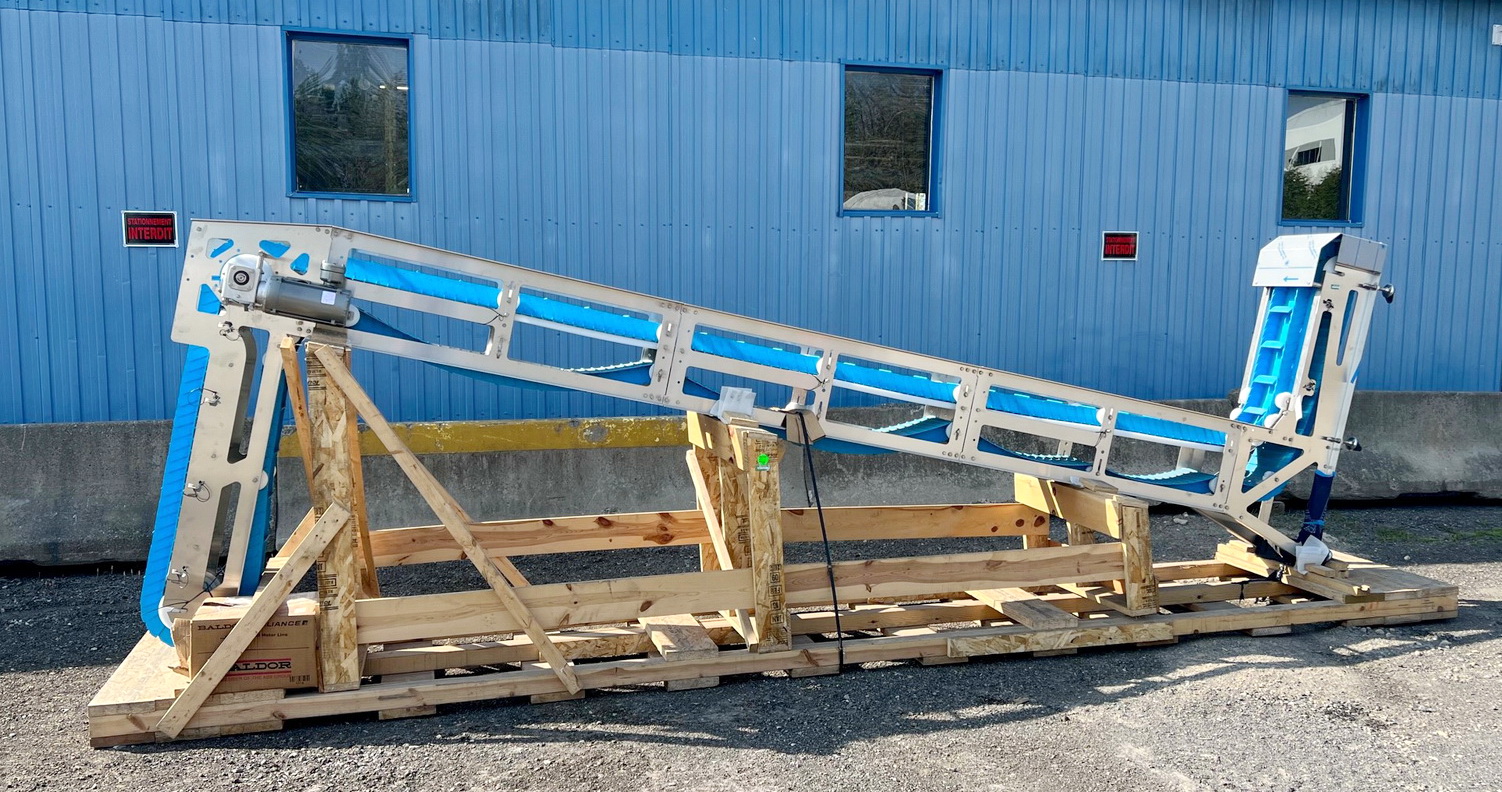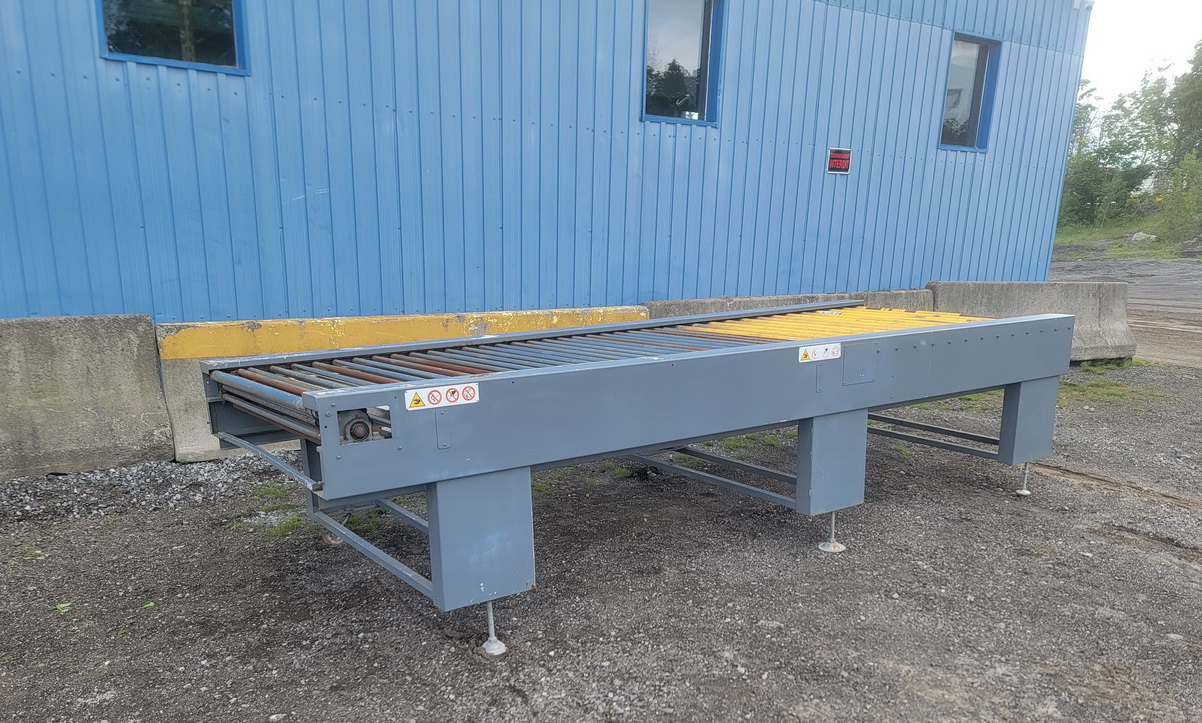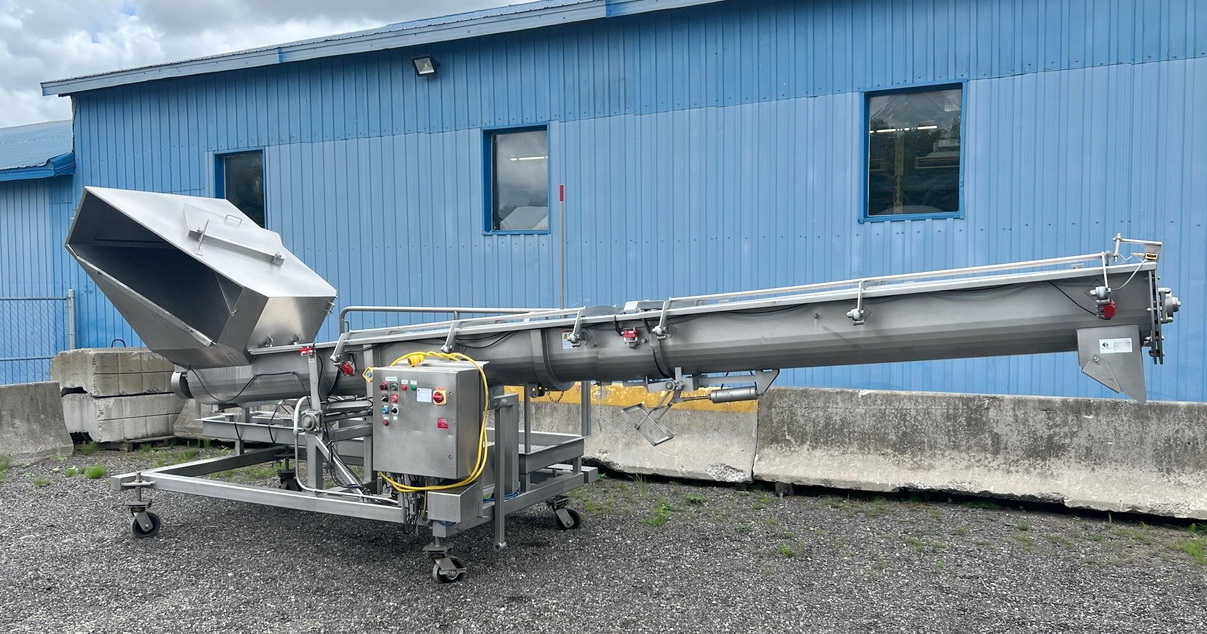Les convoyeurs sont des équipements indispensables dans la transformation et la distribution des produits alimentaires. Découvrez dans cet article leur fonctionnement et en quoi ils sont des maillons clés de l'industrie agroalimentaire.
Les convoyeurs, un élément clé de l'industrie alimentaire
Dans le secteur agroalimentaire, la qualité et la sécurité des produits sont d'une importance primordiale. Un élément crucial pour assurer ces deux aspects est l'utilisation de convoyeurs adaptés spécialement conçus pour les besoins de l'industrie alimentaire. Ces équipements essentiels permettent un transport sûr, rapide et efficace des denrées alimentaires tout au long du processus de production.
La conformité aux normes d'hygiène
Parmi les principaux avantages des bandes transporteuses utilisées dans l'industrie alimentaire, on trouve leur conception conforme aux normes d'hygiène imposées par les régulateurs nationaux et internationaux. Les convoyeurs installés dans les usines de transformation agroalimentaire ont en effet pour mission de respecter de rigoureuses conditions de propreté pour éviter toute contamination des aliments qu'ils acheminent.
Matériaux adaptés
Les bandes transporteuses peuvent être fabriquées à partir de divers matériaux tels que le plastique, le caoutchouc ou encore l'acier inoxydable. Le choix du matériau dépend de plusieurs facteurs, tels que la nature des aliments transportés, les conditions de travail (température, humidité) et les contraintes mécaniques imposées par le processus de production. Chacun de ces matériaux doit répondre aux exigences de qualité alimentaire afin de garantir la sécurité des consommateurs.
Nettoyage et entretien facilités
Les convoyeurs destinés à l'industrie alimentaire sont conçus de manière à faciliter leur nettoyage. Leur conception modulaire permet un démontage rapide et aisé, rendant possible un entretien régulier et efficace pour éliminer tout résidu et assurer une hygiène irréprochable. Par ailleurs, les surfaces des bandes transporteuses sont souvent traitées avec des revêtements spécifiques qui empêchent la prolifération de bactéries et autres micro-organismes pathogènes.
Optimisation des processus de production
Bien plus qu'un simple moyen de transport des aliments, les convoyeurs jouent un rôle essentiel dans l'optimisation des processus de production au sein de l'industrie alimentaire. Grâce à leurs nombreuses caractéristiques et fonctionnalités, ils permettent d'accroître la productivité et la performance des usines de transformation.
Une vitesse adaptée aux exigences des chaînes de production
Les convoyeurs offrent une vitesse de transport adaptable en fonction des besoins du processus de production, pouvant aller de quelques mètres par minute à plusieurs dizaines de mètres par seconde. Cette flexibilité est particulièrement appréciée dans l'industrie alimentaire, où les délais de conservation des produits imposent souvent un rythme soutenu.
Gestion automatisée et contrôle précis
De nombreux convoyeurs intègrent des systèmes de contrôle et d'automatisation permettant une gestion fine des flux de produits. Ces technologies permettent, par exemple, de synchroniser les différentes étapes du processus de production, de modifier la vitesse des bandes transporteuses en fonction des besoins ou encore d'orienter les produits vers différentes lignes de conditionnement à l'aide de dispositifs de guidage.
Les différents types de convoyeurs utilisés dans l'industrie alimentaire
Selon les spécificités de chaque chaîne de production, différents types de convoyeurs peuvent être employés pour acheminer les aliments et assurer leur manipulation en toute sécurité.
Convoyeurs à bande
Ce type de convoyeur est constitué d'une bande sans fin entraînée par un tambour moteur et supportée par des rouleaux. Les convoyeurs à bande sont particulièrement adaptés pour le transport de denrées alimentaires en vrac, telles que des légumes secs, des céréales ou des fruits.

Convoyeurs à rouleaux
Composés de nombreux rouleaux alignés sur une structure, les convoyeurs à rouleaux permettent le déplacement de charges sur des surfaces planes, comme des palettes ou des bacs. Ils sont notamment utilisés pour le transfert des emballages entre différentes étapes du processus de production.

Convoyeurs à vis sans fin
Intégrant l'arsenal des équipements dédiés à l'acheminement des produits dans l'industrie agroalimentaire, les convoyeurs à vis sans fin se distinguent par leur mécanisme hélicoïdal. Ils sont spécialement conçus pour le transport de matières en vrac, notamment les ingrédients granulaires tels que les céréales et les poudres. Leur structure unique permet un déplacement fluide et continu des matières, garantissant ainsi une manipulation délicate et minimisant les pertes. De plus, leur polyvalence en termes de configuration, qu'elle soit verticale ou horizontale, les rend idéaux pour les espaces restreints souvent rencontrés dans les installations agroalimentaires. En outre, leur capacité à maintenir l'homogénéité des mélanges lors du transport en fait un choix incontournable pour garantir la qualité et la sécurité des produits alimentaires.

Convoyeurs modulaires
Les convoyeurs modulaires se distinguent par leur conception en modules indépendants assemblés selon les besoins spécifiques de chaque installation. Cette configuration offre une grande flexibilité et un haut niveau de personnalisation aux usines de transformation alimentaire, qui peuvent ainsi adapter facilement leur système de convoyage aux contraintes de chaque chaîne de production.
En résumé
Les convoyeurs revêtent une importance cruciale pour l'industrie alimentaire, en permettant :
Un respect des normes d'hygiène grâce à des matériaux adaptés et un entretien facilité,
L'optimisation des processus de production par l'adaptation de la vitesse et le contrôle automatisé,
Une grande diversité de solutions pour s'adapter aux spécificités de chaque chaîne de production.
Ainsi, les convoyeurs contribuent largement au développement d'une industrie alimentaire performante, compétitive et garantissant la sécurité des consommateurs. Si vous recherchez un convoyeur pour votre entreprise, n’hésitez pas à visiter notre page de convoyeurs d’occasion à vendre.
